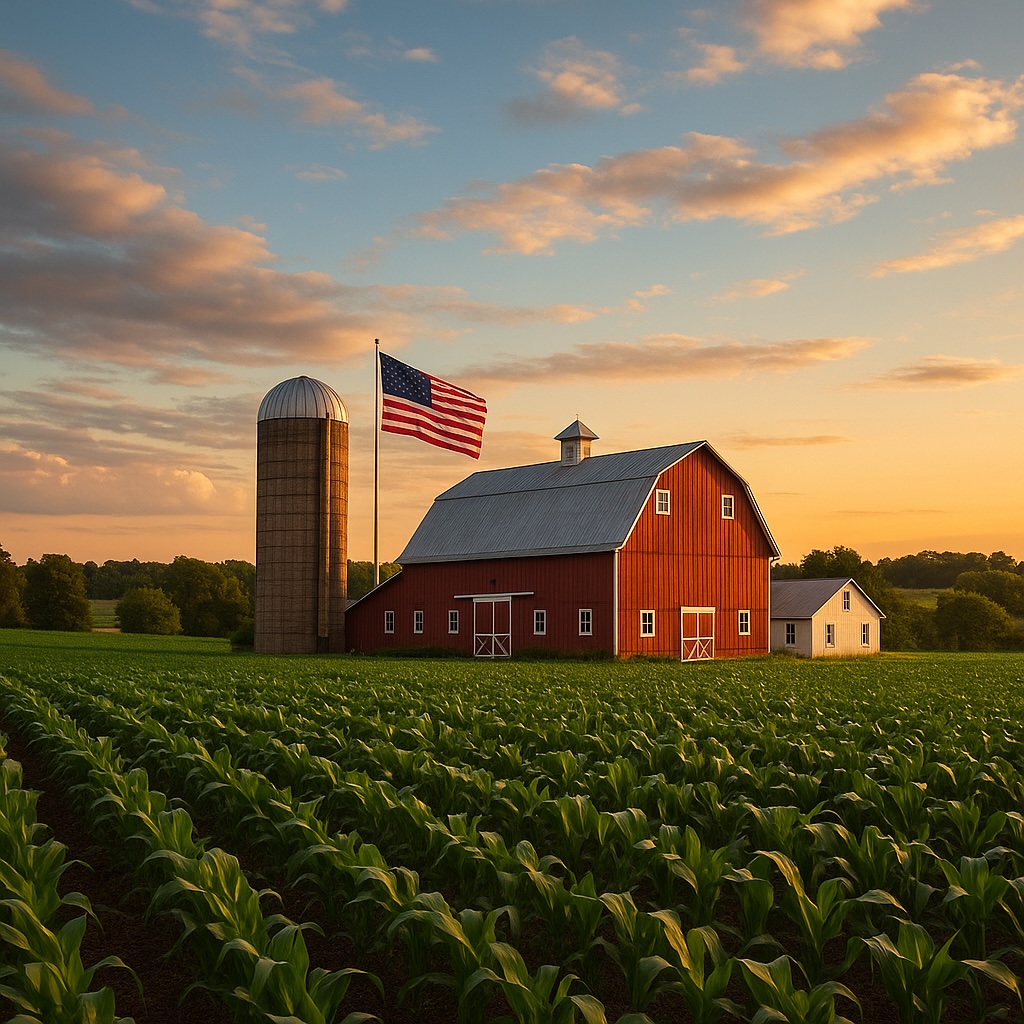Trump Administration Unveils Aggressive National Farm Security Plan to Confront Foreign Threats\n\n
Chinas Secret Weapons in the Trade WarThe Trump administration on Tuesday launched a sweeping plan to fortify U.S. agriculture against growing national security threats, declaring the sector

The Trump administration on Tuesday launched a sweeping plan to fortify U.S. agriculture against growing national security threats, declaring the sector a cornerstone of American sovereignty in the face of rising foreign influence and sabotage.
Announced by U.S. Secretary of Agriculture Brooke L. Rollins alongside senior cabinet officials, the National Farm Security Action Plan marks the latest pillar of the administration’s “Make Agriculture Great Again” initiative. The plan addresses what officials describe as escalating threats from adversarial nations including China, Iran, and Russia—ranging from illicit land acquisitions and cyberattacks to bioterrorism and intellectual property theft.
“We feed the world. We lead the world. And we’ll never let foreign adversaries control our land, our labs, or our livelihoods,” said Secretary Rollins. “This Action Plan puts America’s farmers, families, and future first—exactly where they belong. Under President Trump’s leadership, American agriculture will be strong, secure, and resilient.”
The plan’s release follows a Department of Justice indictment last month against foreign nationals, including a Chinese Communist Party member, accused of smuggling a noxious fungus into the U.S.—a potential agroterrorism agent responsible for billions in crop losses worldwide. Officials say the scheme underscores the vulnerabilities facing the U.S. food and agriculture supply chain, including foreign land ownership and infiltration of domestic research institutions.
Seven-Point Plan to Secure U.S. Agriculture
The National Farm Security Action Plan outlines a coordinated response across seven core areas:
- Securing Farmland – The USDA will overhaul reporting under the Agricultural Foreign Investment Disclosure Act (AFIDA), implementing online systems, increasing penalties for noncompliance, and coordinating with the Committee on Foreign Investment in the U.S. (CFIUS) to block adversarial land purchases.
- Reinforcing Supply Chains – The agency will identify critical inputs—like fertilizers, natural rubber, and chemicals—and reduce dependency on foreign sources, while updating import restrictions to block pathogens and biochemicals capable of damaging U.S. agriculture.
- Protecting Nutrition Programs – SNAP and related programs will be shielded from fraud, with new enforcement measures targeting transnational criminal organizations that exploit payment systems.
- Defending Research and IP – All USDA-funded research must certify that participants are not tied to foreign adversaries or malign foreign talent programs. Funding will be prioritized for American-made technologies and institutions.
- Reorienting USDA Programs – A review of USDA’s global initiatives aims to ensure all programs align with an “America First” agenda, ending support for entities in countries of concern.
- Biosecurity for Plants and Animals – USDA will work with agencies like DARPA to develop vaccines and eradication methods for major threats such as African swine fever, avian influenza, and invasive pests.
- Critical Infrastructure Protection – Public-private partnerships will be strengthened to harden food systems against cyberattacks, ransomware, and other disruptions. The USDA also aims to build an “agro-defense workforce” through academic and research investment.
National Security Framing Draws Broad GOP Praise
Trump officials emphasized the role of agriculture in broader homeland defense. “Food policy is national security policy,” said Homeland Security Secretary Kristi Noem. “A country that cannot feed itself cannot provide for itself.”
Defense Secretary Pete Hegseth added, “Foreign ownership of land near strategic bases and U.S. military installations poses a serious threat to our national security. The Farm Security Plan will put America First and keep our bases secure.”
The plan has garnered widespread support among Republican leaders. Arkansas Governor Sarah Huckabee Sanders, whose state was the first to ban Chinese land ownership, praised the initiative: “Farm security is national security. I applaud President Trump and Secretary Rollins for protecting our food supply, our economy, and our freedom.”
Senator Tommy Tuberville (R., Ala.), citing the 2.2 million acres of Alabama land under foreign ownership, called the issue “disastrous for national security.” Senator Roger Marshall (R., Kan.) similarly warned against “waiting until it is too late” to defend the nation’s agricultural base.
House Agriculture Committee Chairman Glenn “GT” Thompson emphasized the stakes: “President Trump is using every tool at his disposal to keep our nation safe, and that includes securing our food supply.”
Looking Ahead
The USDA’s Action Plan will serve as a roadmap for collaboration with Congress, governors, and federal agencies to embed agricultural security within America’s broader defense strategy.
Kentucky Agriculture Commissioner Jonathan Shell summarized the stakes succinctly: “Protecting our farmland and food systems from foreign influence and biosecurity threats is critical not only to our agricultural economy but to the national security of the United States.”
Disclaimer: The views in this article are from the original Creator and do not represent the views or position of Hawk Insight. The content of the article is for reference, communication and learning only, and does not constitute investment advice. If it involves copyright issues, please contact us for deletion.